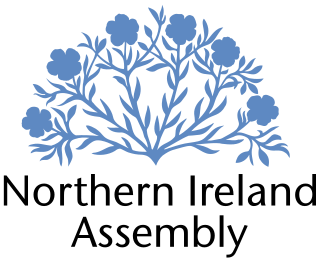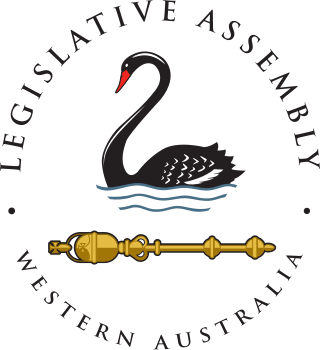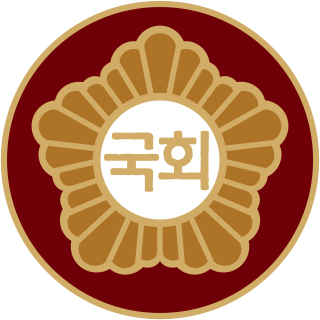 |
|---|
Territorial Assembly elections were held in French Togoland on 30 March 1952. The result was a victory for the Union of Chiefs and Peoples of the North, which won 15 of the 30 seats. [1]
 |
|---|
Territorial Assembly elections were held in French Togoland on 30 March 1952. The result was a victory for the Union of Chiefs and Peoples of the North, which won 15 of the 30 seats. [1]
Three of the MPs elected on Committee of Togolese Unity (CUT) lists were not party members; one was a trade unionist and two were members of local parties. [1]
 | ||||
|---|---|---|---|---|
| Party | Votes | % | Seats | |
| Union of Chiefs and Peoples of the North | 20,316 | 48.99 | 15 | |
| Committee of Togolese Unity−Juvento | 10,650 | 25.68 | 9 | |
| Togolese Party of Progress | 10,505 | 25.33 | 6 | |
| Total | 41,471 | 100.00 | 30 | |
| Valid votes | 41,471 | 98.97 | ||
| Invalid/blank votes | 433 | 1.03 | ||
| Total votes | 41,904 | 100.00 | ||
| Registered voters/turnout | 50,915 | 82.30 | ||
| Source: Sternberger et al. | ||||

The Chinese Communist Party (CCP), officially the Communist Party of China (CPC), is the founding and sole ruling party of the People's Republic of China (PRC). Under the leadership of Mao Zedong, the CCP emerged victorious in the Chinese Civil War against the Kuomintang. In 1949, Mao proclaimed the establishment of the People's Republic of China. Since then, the CCP has governed China and has had sole control over the People's Liberation Army (PLA). Successive leaders of the CCP have added their own theories to the party's constitution, which outlines the party's ideology, collectively referred to as socialism with Chinese characteristics. As of 2024, the CCP has more than 99 million members, making it the second largest political party by membership in the world after India's Bharatiya Janata Party.

The Alliance of Liberals and Democrats for Europe Party is a European political party composed of 76 national-level parties from across Europe, mainly active in the European Union. The ALDE Party is affiliated with Liberal International and a recognised European political party, incorporated as a non-profit association under Belgian law.

The House of Commons is the lower house of the Parliament of the United Kingdom. Like the upper house, the House of Lords, it meets in the Palace of Westminster in London, England. The House of Commons is an elected body consisting of 650 members known as members of Parliament (MPs), who are elected to represent constituencies by the first-past-the-post system and hold their seats until Parliament is dissolved.

The Nazi Party, officially the National Socialist German Workers' Party, was a far-right political party in Germany active between 1920 and 1945 that created and supported the ideology of Nazism. Its precursor, the German Workers' Party, existed from 1919 to 1920. The Nazi Party emerged from the extremist German nationalist, racist, and populist Freikorps paramilitary culture, which fought against communist uprisings in post–World War I Germany. The party was created to draw workers away from communism and into völkisch nationalism. Initially, Nazi political strategy focused on anti-big business, anti-bourgeoisie, and anti-capitalism, using disingenuous socialist rhetoric to gain the support of the lower middle class; it was later downplayed to gain the support of business leaders. By the 1930s, the party's main focus shifted to antisemitic and anti-Marxist themes. The party had little popular support until the Great Depression, when worsening living standards and widespread unemployment drove Germans into political extremism.
Sinn Féin is an Irish republican and democratic socialist political party active in both the Republic of Ireland and Northern Ireland.
The Conservative and Unionist Party, commonly the Conservative Party and colloquially known as the Tories, is one of the two main political parties in the United Kingdom, along with the Labour Party. The party sits on the centre-right to right-wing of the political spectrum. Following defeat by Labour in the 2024 general election, it is currently the second largest political party by the number of votes cast and number of seats in the House of Commons, followed by the Liberal Democrats. As the second largest party, it has the formal parliamentary role of the Official Opposition. It encompasses various ideological factions including one-nation conservatives, Thatcherites, and traditionalist conservatives. There have been twenty Conservative prime ministers. The party traditionally holds the annual Conservative Party Conference during party conference season, at which senior Conservative figures promote party policy.
A member of parliament (MP) is the representative in parliament of the people who live in their electoral district. Members of parliament typically form parliamentary groups, sometimes called caucuses, with members of the same political party. Many countries with bicameral parliaments, this term refers only to members of the lower house since upper house members often have a different title. The terms congressman and deputy are equivalent terms used in other jurisdictions.

The Northern Ireland Assembly, often referred to by the metonym Stormont, is the devolved legislature of Northern Ireland. It has power to legislate in a wide range of areas that are not explicitly reserved to the Parliament of the United Kingdom, and to appoint the Northern Ireland Executive. It sits at Parliament Buildings at Stormont in Belfast.

The Parliament of the Republic of South Africa is South Africa's legislature. It is located in Cape Town, the country's legislative capital.

The Croatian Parliament or the Sabor is the unicameral legislature of Croatia. Under the terms of the Croatian Constitution, the Sabor represents the people and is vested with legislative power. The Sabor is composed of 151 members elected to a four-year term on the basis of direct, universal and equal suffrage by secret ballot. Seats are allocated according to the Croatian Parliament electoral districts: 140 members of the parliament are elected in multi-seat constituencies. An additional three seats are reserved for the diaspora and Croats in Bosnia and Herzegovina, while national minorities have eight places reserved in parliament. The Sabor is presided over by a Speaker, who is assisted by at least one deputy speaker.

The Communist Party of India (Marxist) (abbreviated as CPI(M)) is a communist political party in India. It is the largest communist party in India in terms of membership and electoral seats, and one of the six national parties of India. The party was founded through a splitting from the Communist Party of India in 1964 and it quickly became the dominant faction.

The Western Australian Legislative Assembly, or lower house, is one of the two chambers of the Parliament of Western Australia, an Australian state. The Parliament sits in Parliament House in the Western Australian capital, Perth.

The National Assembly of the Republic of Korea is the unicameral national legislature of South Korea. Elections to the National Assembly are held every four years. The latest legislative elections were held on 10 April 2024. The current National Assembly held its first meeting, and also began its current four year term, on 30 May 2024. The current Speaker was elected 5 June 2024. The National Assembly has 300 seats, with 253 constituency seats and 47 proportional representation seats; 30 of the PR seats are assigned an additional member system, while 17 PR seats use the parallel voting method.

Federal elections were held in Germany on 5 March 1933, after the Nazi seizure of power on 30 January and just six days after the Reichstag fire. The election saw Nazi stormtroopers unleash a widespread campaign of violence against the Communist Party (KPD), left-wingers, trade unionists, the Social Democratic Party and the Centre Party. They were the last multi-party elections in a united Germany until 1990.
An independent politician or non-affiliated politician is a politician not affiliated with any political party or bureaucratic association. There are numerous reasons why someone may stand for office as an independent.

The Liberal Democrats are a liberal political party in the United Kingdom, founded in 1988. They are based at Liberal Democrat Headquarters, in Westminster, and the current leader of the party is Ed Davey. They are the third-largest party in the United Kingdom, with 72 members of Parliament (MPs) in the House of Commons. They have 77 members of the House of Lords, four members of the Scottish Parliament, one member in the Welsh Senedd, and more than 3,000 local council seats. The party holds a twice-per-year Liberal Democrat Conference, at which party policy is formulated. In contrast to its main opponents' rules, the Liberal Democrats grant all members attending its Conference the right to vote on party policy, under a one member, one vote system. The party also allows its members to vote online for its policies and in the election of a new leader.
The Labour Party is a political party in the United Kingdom that sits on the centre-left of the political spectrum. The party has been described as an alliance of social democrats, democratic socialists and trade unionists. It is one of two dominant political parties in the United Kingdom, along with the Conservative Party. The party has been led by Keir Starmer since 2020. Starmer became UK Prime Minister and formed a Labour government following the 2024 general election. To date, there have been thirteen Labour governments and seven Labour prime ministers - MacDonald, Attlee, Wilson, Callaghan, Blair, Brown and Starmer.

The United States House of Representatives is the lower chamber of the United States Congress, with the Senate being the upper chamber. Together, they compose the national bicameral legislature of the United States. The House is charged with the passage of federal legislation, known as bills; those that are also passed by the Senate are sent to the president for signature or veto. The House's exclusive powers include initiating all revenue bills, impeaching federal officers, and electing the president if no candidate receives a majority of votes in the Electoral College.

The Bihar Legislative Assembly, also known as the Bihar Vidhan Sabha, is the lower house of the bicameral Bihar Legislature of the state of Bihar in India. The first state elections were held in 1952.